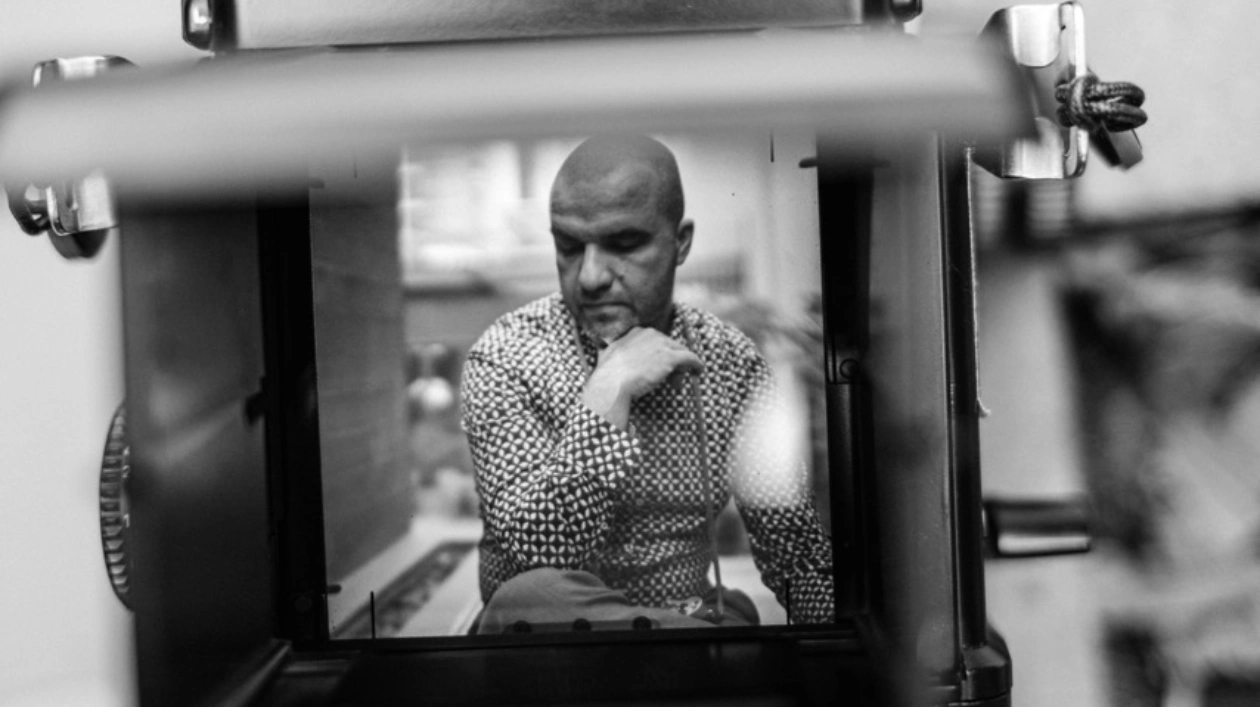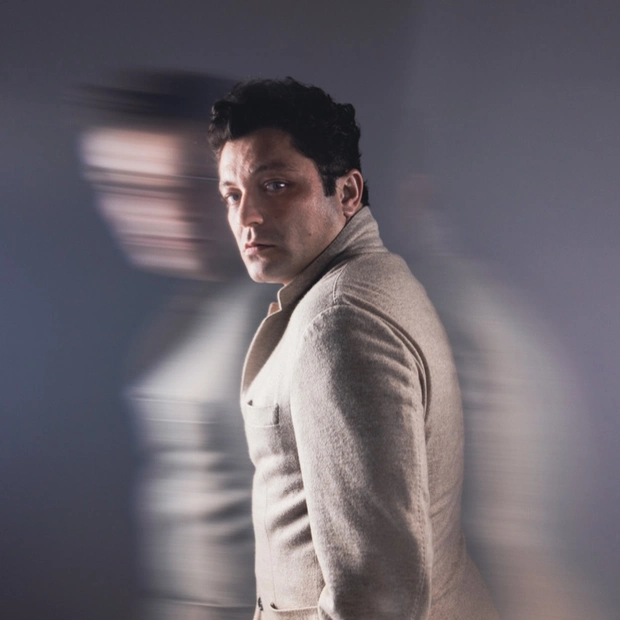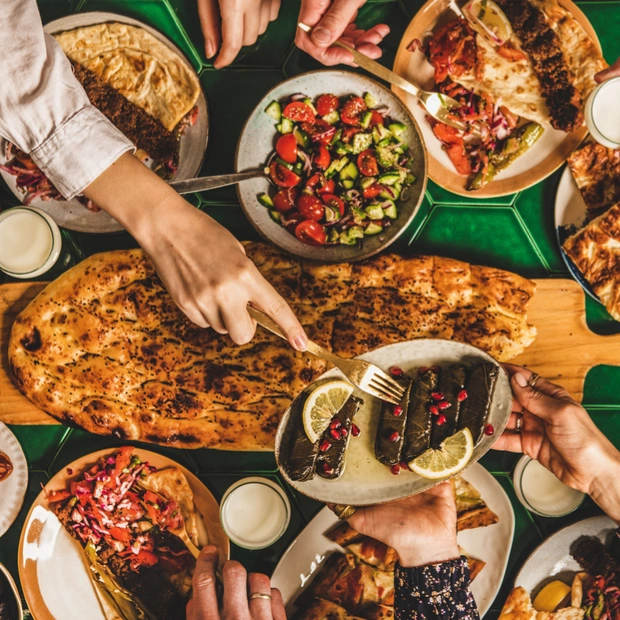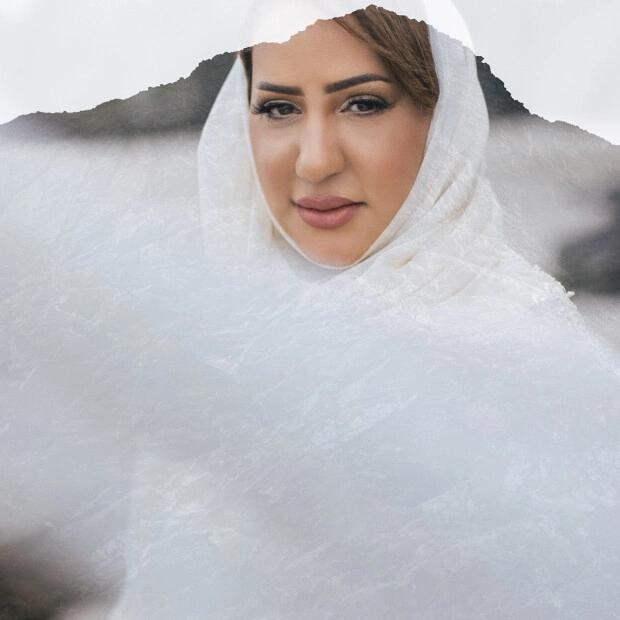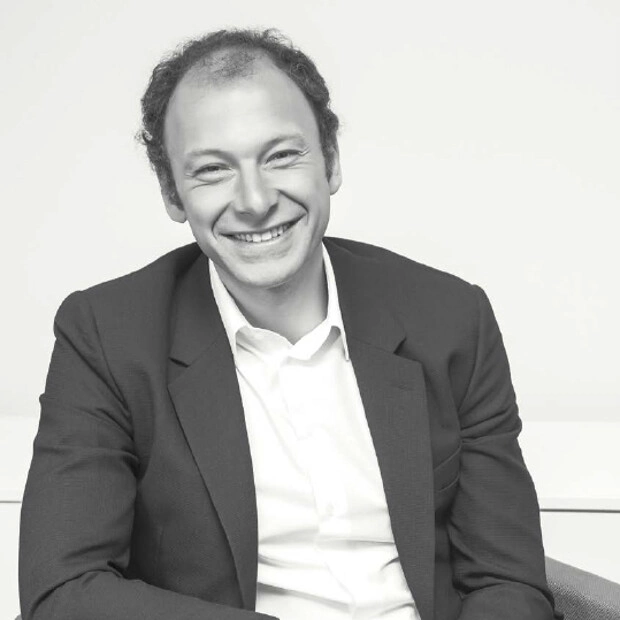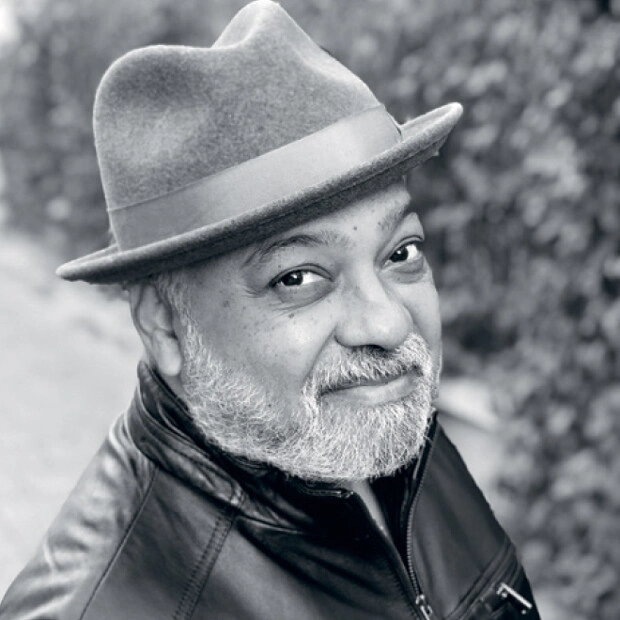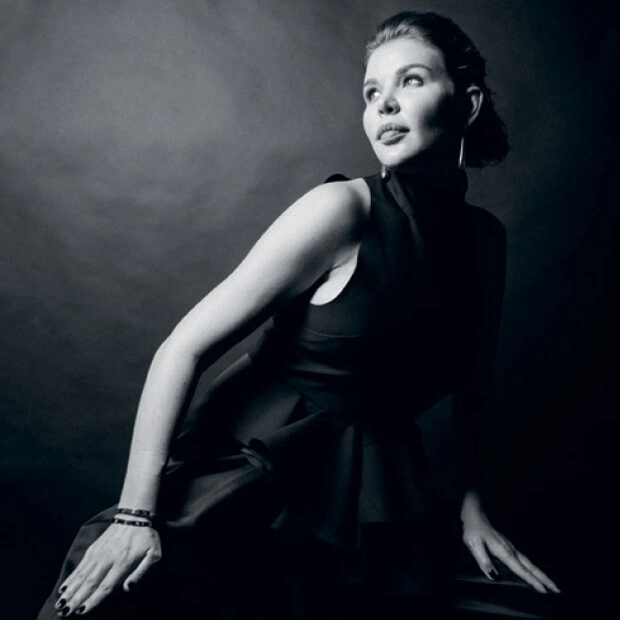A Healthy Addiction
Every moment of our life is unique. But the idea of capturing and preserving it, because it is beautiful, is alluring. Photography is a new world that will not let go of anyone who has held a camera (especially a film one) at least once. We take so many shots on our phones every day that it's hard to imagine someone with the time to review them all. But film is a different matter. Semyon Kurkov, founder of Lab Al Awal, shares how the photography business is developing in Dubai.
When asked about my nationality, I answer — Pomor. My passport officially states my place of birth — the Solovetsky Islands. Police officers always smile when they see this entry. I also have a green card that allows me to board the ferry from Rabocheostrovsk to Solovki without queuing — they let me through as a local.
I was born, as they say, "on a restoration construction site". My parents went to Solovki with a construction team from the physics department of Moscow State University and stayed there for four years. My father was fond of photography and was an advanced amateur. He collected cameras and always had a darkroom at home. When I was five, I first held a camera at a pioneer camp. Before that, I was constantly hanging around my father's room where he printed photos. My father introduced me to the world of negative scanning. When I was 15 (in the mid-90s), I was actively involved in this, using the most advanced scanner models. This process captivated me — I literally meditate when I scan. The repetitive actions allow me to immerse myself in a special state and delve deep into my thoughts and feelings.
In '98, I took a comprehensive photography course and met Anton Lange by chance. We bumped into each other on the street, started talking, and chatted for several hours. We've been friends ever since. I got a job as his assistant and worked for three or four years. Anton was just starting his "Russia from a Train Window" project at the time.
I am a mining engineer by education and have a second degree in oil and gas economics. In 2005, I went to work for large companies — first at the United Metallurgical Company (OMK), then at SIBUR, Gazprom Neft, and Rosatom. I was mainly involved in investment processes — evaluating project effectiveness, project activities, and internal sales. I went there to see how everything works in big corporations and then apply this experience in my own business. In 2017, I left Rosatom — not to retire, I just decided to take a break and exhale. I rested for six months. I had long wanted to buy a high-end scanner to scan my father's large photo archive. I decided to do it myself instead of sending it to a lab. I set up the scanner at home and started working. But soon it got boring, and I wanted some movement.
I would call myself an entrepreneur in the field of photography. I always take on anything related to the prefix "photo". I got tired of the energy industry and switched to this path. I want to see some tangible results, like photographs. I like what I'm doing now. I still have contacts from the photography world, and Anton Lange and I continued working on the "Moscow in Motion" project for Roskino. While surfing the internet, I learned that in England, such scanners are actively rented out on a coworking basis. People come and scan themselves. I posted an ad and hit the sweet spot. In Europe, self-scanning had become very popular, especially in the fashion industry, where there was a trend to shoot on film again. We quite seriously popularised this activity in Russia, setting a trend for manual development, which is richer and more beautiful.
When I was studying photography in '98, I was always told: if you want to develop well, do it yourself at home in the kitchen. Based on this rule, I created a craft manual development with an individual approach. We became quite popular in Russia, working with many magazines. I started doing development under pressure from clients — they asked to add this service to scanning. Then we launched printing, including manual printing. We opened a photo gallery for film photographers in test mode. It's a very interesting place: you see what others are shooting and understand their capabilities. In addition to selling their work, you can recommend photographers to customers — similar to an agency.
I moved to Dubai to be with my family — the children went to school; my wife got a new job. I missed the children; they had flown out before me. I walked around Moscow, moved the lab to a new location. I realised there was not much for me to do there. I packed up and flew out. I thought I was going for a couple of months. I took one of my favourite Hasselblad scanners with me, just in case. That scanner, by the way, is where the whole business started in Moscow: here too, it's the flagship product with no analogues in the region. I bought the first model of this scanner on Avito. Even while working at Rosatom and Gazprom Neft, I constantly monitored who would sell this expensive thing for a reasonable price. I found it on Avito and have been inseparable from it ever since.
When I arrived in Dubai, the first thing I did was shoot something on film and take it to a local lab. Honestly, I was disappointed. In Moscow, I would have fired someone for that quality. The problem was not with the scanning: my passion is scanners. But it doesn't work without good development. If serious mistakes are made at the development stage, even the highest quality scanner won't save it.
I went around to all the available labs. To be honest, I didn't really want to take on the development myself; I was thinking about collaboration. I found a couple of places. In one, they promised to call back but never did. It was a revelation that people don't really want to help. In another place, they said they wanted to build the best lab in the Middle East and promised to allocate space for it. But they dragged it out for a very long time: first one government permit was needed, then another. They strung me along for a whole year — it was a strange experience. It would have been easier to just say no right away. That's a Dubai thing that I wasn't prepared for.
In Dubai, it's quite costly to wait for something. About a year ago, my group of enthusiasts — advanced amateur photographers — decided that we needed to move forward ourselves, no matter what. I opened a company, and the guys joined later to help. That's how we launched.
We called our company Lab Al-Awal. Translated from Arabic, it means something like "the first laboratory". Initially, we wanted to be called Wahed lab — "one laboratory", but we were told the meaning was more "lonely laboratory". Just Al lab was also not allowed — too generic a name. Choosing the name turned out to be the most difficult part of starting the company — we argued with the person in charge for about 30 minutes; everything else was much simpler.
We provide a full cycle of services for professionals working with film photography and art in general. Development, film sales, high-quality scanning of films and photographs, Polaroids. re-shooting, art reproductions. We work with galleries. Recently I met the guys who opened the Inloco gallery. It's a very interesting space where you can hold events. They sometimes have breaks between exhibitions.
Many of my photographer friends from Moscow, Paris and other places really want to sell in Dubai. I don't see any purely photographic galleries here; it seems to me to be a promising direction. Even if you start with an online format, without a physical space. You can bring in good photographers from Russia: Zhenya Shishkin, Bulat Arslanov and other young film photographers. I know many of them personally; we can make arrangements. In essence, it's already a bit like an agency.
Our philosophy is the pursuit of excellence. I try to be as much of a perfectionist as possible. I want everything to be ideally executed so that professionals can use it. Dubai's problem is not that there is no film photography at all, but that it cannot be a tool for professionals. Or rather, it couldn't until we arrived. The same was true with the previous lab in Moscow. There were old labs that had already slipped a bit in quality. They've been around for 25 years; they have nowhere to grow — the clients will come anyway. It's sad to see businesses that were once very efficient and are now just living out their days while still remaining quite large players.
Now in Dubai we already have a 50/50 split between local and Russian-speaking clients. At first, of course, there were more Russians because I was recommended by word of mouth. I want to popularise film photography so that this market grows. I dream of capturing 30-50% of the market and growing 20-30% per year. Naturally, I want to cover the whole region so that all serious development is done with us. And then we can move to Europe with a network of labs.
You know what photography and golf have in common? They're about communication. I was surprised when I first went to play golf last autumn. I realised that it's also primarily about communication. And it's the same in photography. The most famous photographers are great storytellers. Take Anton Lange, he can talk selflessly on any topic. When he calls, we discuss even the smallest everyday problem for at least an hour.
What motivates me most in my work is communication and interaction with my clients. When they get great shots, I'm happy. Good development, even beautiful pictures — that's inspiring. I also like my own successful photos, of course. I love this process, and I really like what I do. Maybe it sounds too syrupy, but that's how I feel right now. My current outlook on life is closely tied to creativity, my own and others'.
When I started this business, the main problem was that the market not only needed to be captured but created. Educating your clients, you might say. My target audience is people who care about how their film is developed. Perfectionists who are attentive to every detail in shooting and developing. Our philosophy is built around this pursuit of perfection. Everything should be as close to ideal as possible. It doesn't always work out, but we try very hard.
Interestingly, the film photography market, which fell in 2007-2010, is now on the rise again. Kodak made its film division profitable in a single quarter of 2017-2018. They paid off their debts and started growing. Now they raise film prices by 30% every year. This annoys consumers, but they keep buying.
Leica already has two or three new film camera models. A couple more companies have announced or released new products. The problem is that photo lab equipment hasn't been produced for 20 years. All the good stuff was thrown out or disassembled. I assembled my lab literally bit by bit. But now there are many services in China that restore old machines and sell them. It's already a big business. I'm scratching my head myself: seven years ago, I bought my first scanner for $2-3 thousand, and now they cost at least $9-10 thousand. They've gone up in price by 3-4 times.
In Dubai, there are not enough interested people yet, but with the move of Ukrainians, Russians and other immigrants from the post-Soviet space, the situation is changing. We have a more developed culture — all the children attended photo clubs, many parents had home photo labs, old negatives. Once I was brought a colour negative from 1964 — Yuri Gagarin doing sports. I had never seen this picture before and didn't even know that Soviet photographers had wide colour film at that time. It was a real revelation.
We scanned this 60-year-old photograph and got excellent colours and resolution. That's what eternal art means. Since 1995, we have scanned and saved a huge number of photographs to the cloud. Something is lost and disappears with each new iteration of digital media. But this film lay for more than half a century and preserved all the details. Unfortunately, until the image is physically printed or exists as a negative, it is ephemeral art. Although there are a lot of interesting things in digital photography, I sometimes shoot digitally.
Now the trend for film and vinyl is going hand in hand. Often people who are passionate about vinyl records shoot on film. To really engage in film photography, you also need to print manually. We haven't set up classic darkrooms yet, but that's one of the next stages.
By the way, about the speed of work. Previously in Dubai, it took 2-3 weeks from the moment of shooting to getting the finished results. We can do it in a day. The first results will be ready in 2 hours. If I know you're shooting in the studio, I can pick up the films, quickly develop them, and make previews. You select the shots, and by morning the clean scans for the magazine or gallery will be ready.
Launching a business in Dubai turned out to be expensive but not difficult. I listened for a long time to stories about how difficult and expensive it is, how many licences and permits are needed. But when I went to the Department of Economic Development myself, everything turned out to be simpler. The most difficult part was agreeing on the company name. But the next day, everything was launched. Serious issues are indeed resolved quickly here. In Russia, even with the MFC (Multifunctional Centres), opening a company, obtaining a residence permit and similar things would be very complicated and lengthy processes. And here, large matters are resolved quite quickly. It's impressive.
As for government support for art and photography, local artists are actively supported here. At Al Serkal, all the galleries are ready to exhibit regional artists at any time.
I see great opportunities for my project at the Sharjah Biennale. Interest in film photography is growing; there are local enthusiasts who shoot on film, there is a Leica club and other communities. I'm sure there will be support; we just need good, proper projects. Perhaps it should be something at the intersection — projects by our photographers about Dubai or by local Arab photographers about the world. Something connecting. They actively invest in everything with the prefix "Dubai" or "UAE".
Of course, these processes are very long. When I worked in the investment department at SIBUR, we used a rule from Harvard for difficult situations. If you don't like a project, you need to write: "Thank you for the presentation, everything is great, but there are a few suggestions for improvement." And a list of 100 points. "For your convenience, I've already done this; you just have to say yes or no." It's the same here: you can't just go to the Ministry of Culture and propose creating a working group. They need ready-made solutions so they can just say yes. You can agree on anything at a social event, but until you draw up a business plan and show who will do it and what you already have, nothing will happen.
But all the efforts and time spent on paperwork are worth it. After all, as one of my clients said, "If you don't want your kids to use drugs and alcohol, give them a film camera — they simply won't have money left for it." It's a joke, but I have two children myself — 5 and 10 years old. I'm trying to teach them photography and to be friends with each other, and a common interest helps strengthen friendship. This is very important.
That's the kind of peculiar mission — to create a healthy addiction to film, so that everyone gets obsessed with this art again. All my photographer friends have refrigerators stuffed with film. They start to get nervous if the stock is below a certain level. It's a strange feeling, but it is indeed a kind of addiction. And I help people realise themselves in this creative addiction.
Perhaps that is my mission — to develop the photography community in Dubai, to create a space for those who care. After all, photography is not just pictures; it is a way of communicating, a way of seeing the world. And if we can teach more people this language, the world will become a little bit better and more interesting. As one familiar muse aptly quoted, "Beauty is in the eye of the beholder" — a successful shot depends more on how the taker looks at it at the moment of creating the picture, and not on what is depicted in it. Magic happens when there are emotions, passion, both in business, sales, and in photography and art in general.
